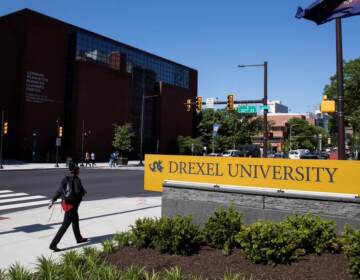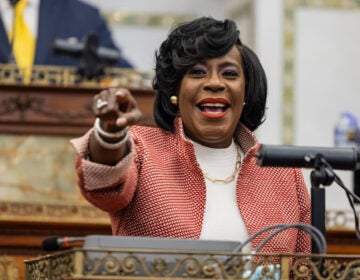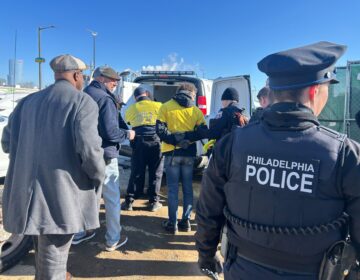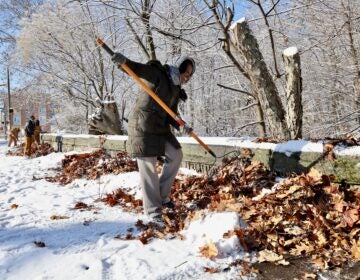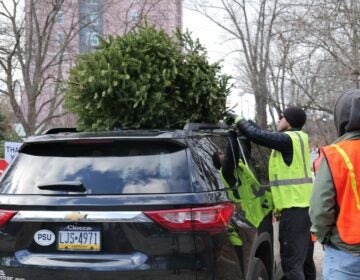Environmental justice activists push for home repair and renewable energy money in Philly budget
Activists with Philly Thrive argue repairs help residents stay in their homes and adapt to climate change. At least one member of City Council is listening.
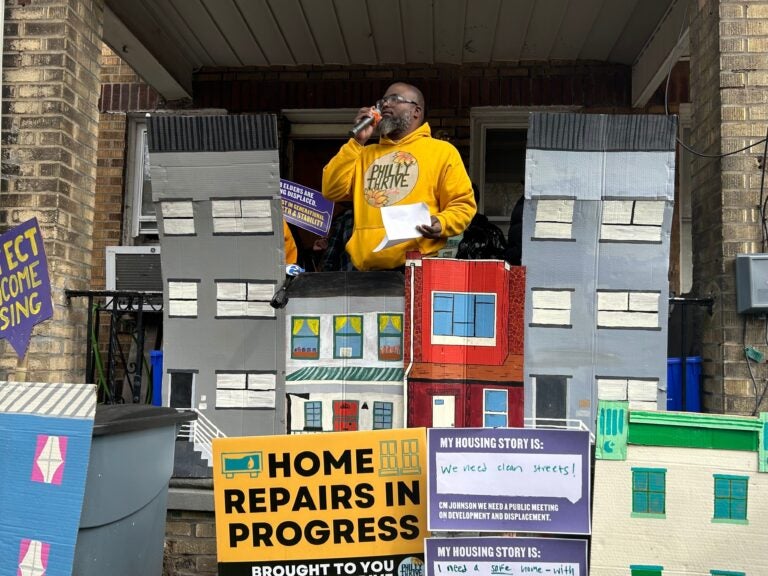
Philly Thrive co-director Shawmar Pitts calls on City Council to pass money for home repairs and renewable energy in next year’s budget. (WHYY/Sophia Schmidt)
Have a question about Philly’s neighborhoods or the systems that shape them? PlanPhilly reporters want to hear from you! Ask us a question or send us a story idea you think we should cover.
Environmental justice activists in Philly’s Grays Ferry neighborhood are calling on City Council to put money in next year’s budget for home repairs and green energy.
The group Philly Thrive wants to see the city invest $5 million in a program called Built to Last, run by the quasi-governmental Philadelphia Energy Authority, which coordinates free home repairs, weatherization, appliance electrification and rooftop solar for low-income households.
“Long-term residents who are unable to afford repairs have been forced out of the neighborhood,” said Philly Thrive’s co-director and policy coordinator, Shawmar Pitts. “It’s clear. We need home repairs and low-income housing for our residents.”
At-large City Councilmember Nicolas O’Rourke has met with Philly Thrive and plans to push for at least $5 million for Built to Last in the budget, said spokesperson Jordan Levy. He said it could unlock additional federal funding.
“Built to Last is everything you’d want to see in a housing repairs program, because it streamlines critical services and resources to those who need it most,” O’Rourke said in a statement.
In the meantime, Philly Thrive, a small nonprofit known for its activism surrounding the former PES refinery site, is launching its own home repair program. It kicked off with a top-to-bottom renovation underway in a home in Grays Ferry.
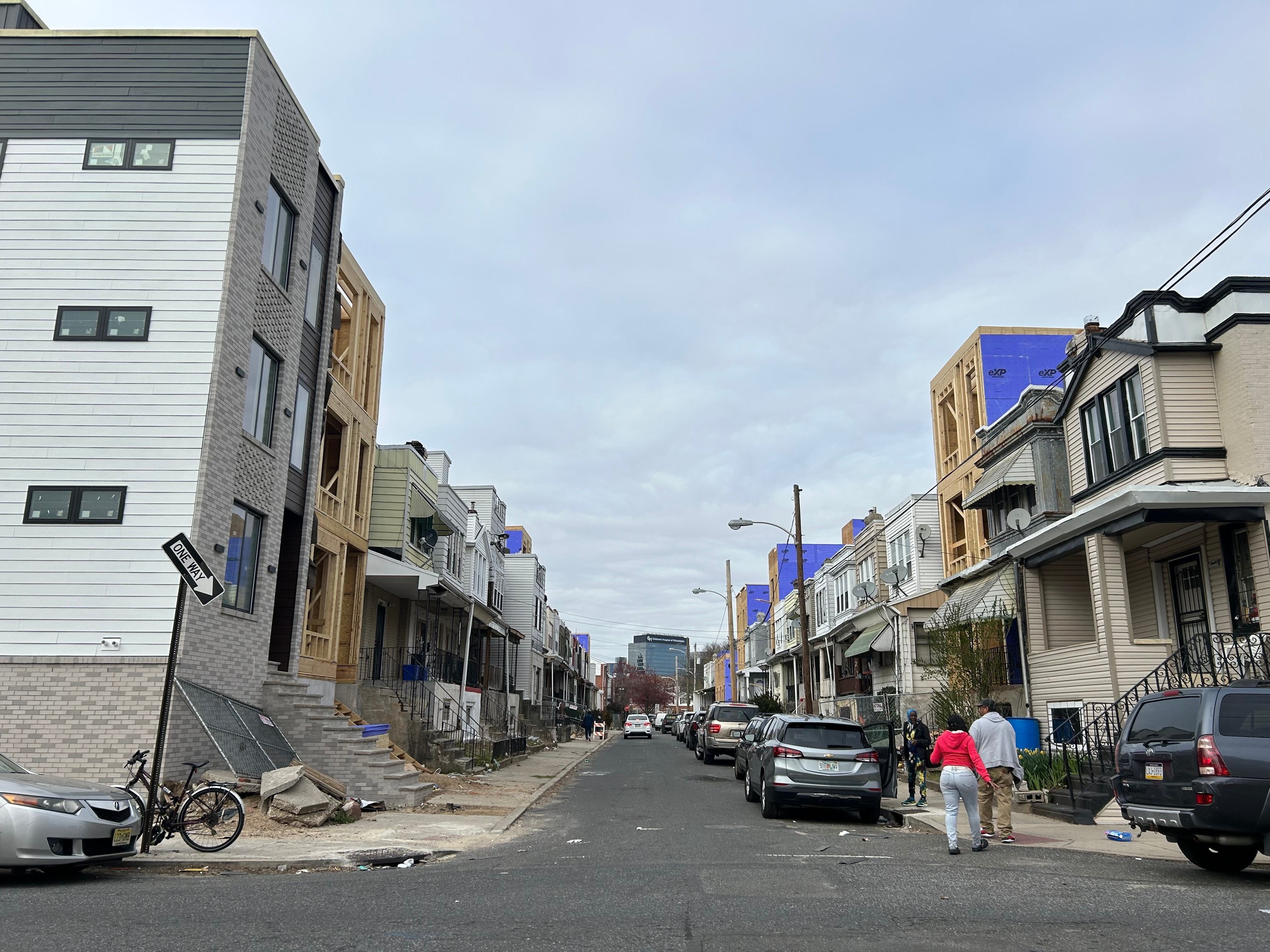
“I’m super excited about just doing the whole block,” said Shaakir Henderson, a volunteer managing Thrive’s home repair program. “Whatever I do to better my community, I’m going to do it to the fullest.”
Thrive members argue home repairs help long-term residents stay in the neighborhood and resist offers from developers hoping to buy homes for cheap. They say repairs can combat gun violence, boost households’ resilience to climate change and help lower utility bills.
“We surveyed the whole neighborhood, and they want to stay,” Pitts said. But leaky roofs, cracked basement walls and a lack of insulation can drive energy bills up and cause other issues. “It’s a lot of things pulling and tugging at you that make you say, this house is a problem.”
Thrive’s home repair program will aim to improve the energy efficiency of homes with measures like new doors, new windows and insulation, Pitts said. But the program will not have enough funding to install renewable energy systems. It’ll be funded with around $250,000 over the course of several years from a community benefits agreement associated with nearby Pennovation — but that’s just a “drop in the bucket” of what’s needed, Pitts said.
“We want money in the budget so Built to Last can come and put geothermal energy in people’s homes and solar energy in people’s homes,” he said.
Built to Last launched with a pilot in 2021 and has received state and federal funding. The Philadelphia Energy Authority got around $2 million under the Philadelphia Managing Director’s Office in the city’s current fiscal year budget, but that has gone to the authority’s operating budget rather than Built to Last, said PEA president and CEO Emily Schapira.
Mayor Cherelle Parker has promised to make Philly the cleanest and greenest big city in America. Her proposed operating budget in brief does not mention the Philadelphia Energy Authority or the Built to Last program specifically, but the mayor said in her budget address that her funding proposal supports a “one-front-door” approach that would allow residents to apply for multiple home repair assistance programs, such as Basic Systems Repair and the Restore Repair Renew loan program, at once.
City Council will shape next year’s budget over the course of the next few months. Philadelphians can tune into a series of hearings on the budget and provide testimony March 27, April 24 and May 1.

Get daily updates from WHYY News!
WHYY is your source for fact-based, in-depth journalism and information. As a nonprofit organization, we rely on financial support from readers like you. Please give today.




